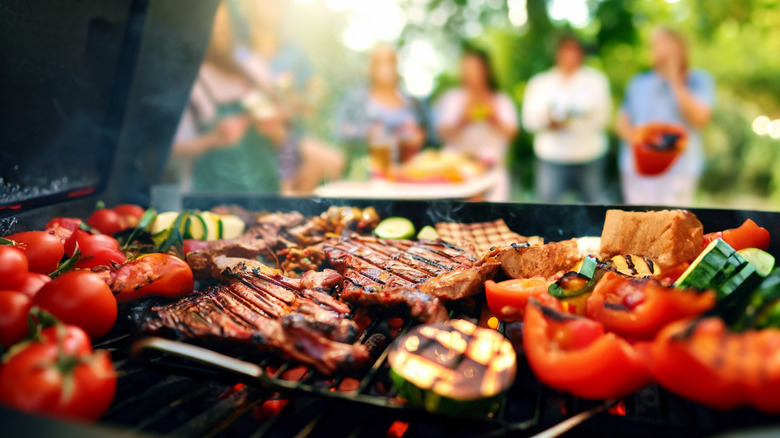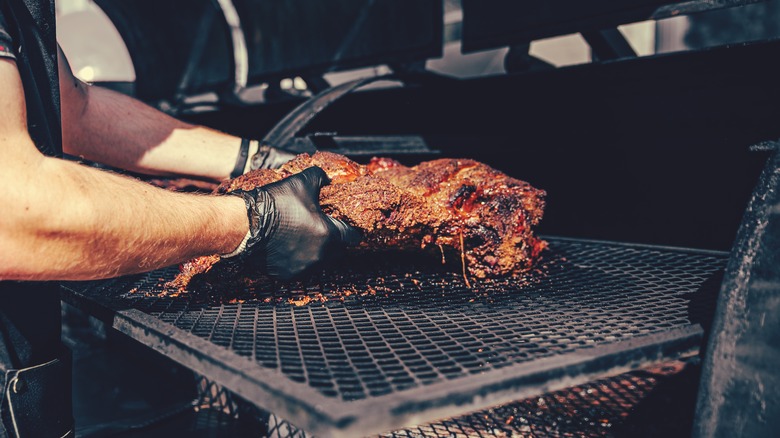The Type Of Food You Always Need To Cook First On A Barbecue
Hosting the best backyard barbecue is the perfect way to celebrate a warm-weather day. Whether there is a special occasion attached to it or you just want a reason to gather friends and family for a visit, the fun is the easy part — but handling the barbecue can be easy, too, as long as you keep some form to the process. When it comes to which foods to cook and when, make sure the thickest meats hit the grill first. Otherwise, they'll never be ready to pair with everything else you've already prepared.
The perfect barbecue setup has rhyme and reason, and timing is everything. Plan accordingly and understand how long each type of meat will take to cook (hint: The meat's thickness and desired temperature impact cook time). If you want most of the food ready when guests arrive, you might have to start the process hours before showtime.
Start the barbecue with thicker pieces of meat
When cooking something like a thick beef brisket or a rack of ribs on the grill, you should expect to carve out several hours (depending on the weight) because these types of meat are typically cooked low and slow using indirect heat. This allows the meat's interior to get to that perfect tenderness temperature without burning or charring the meat's exterior. The exact amount of time you need for the meat will vary, but it's recommended to reserve anywhere from 30-60 minutes of cooking time for every pound of meat. So, if you're cooking a 5-pound brisket, it could take anywhere from 2½-5 hours.
If you plan to serve brisket or ribs with other, quicker-cooking items like burgers or grilled vegetables, you should save the thinner meats and veggies until just before serving; they'll only take a few minutes to cook.
How to properly cook meat low and slow
When it comes to barbecuing on a grill, temperature is vital. Since the meat will cook so slowly, you need a tactic to keep the temperature consistent at all times. With gas grills, this is easy because you can adjust the temperature simply using a dial. But for a charcoal grill, you might need to replace those coals from time to time.
If you're cooking with coals, you'll need to change them out every 60-90 minutes to ensure they burn at their best. With wood, you can get away with about 2-3 hours before changing it out, but it's best to check it consistently. The ideal temperature for barbecue cooking is around 200-300 F, so keep a thermometer handy to measure temperature and add more heat as needed.
Finally, stay organized while barbecuing, too. The meat is just one aspect of the day; keep your tools and ingredients handy to ease the process, which will help free up more time to focus on perfecting that meat.


